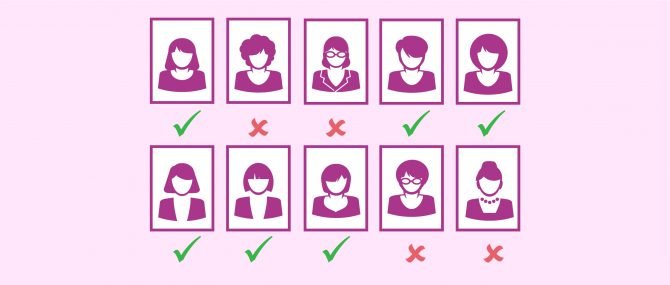Hello ladies, I’d like to read your stories! Also, I’d like to find out how do I get this business started? I’ve made up my mind regarding egg donation… I’m willing to help someone, but firstly I’d like to be tested for as many diseases, infections, alterations… as possible before committing to someone… My question is, do all physicians/doctors run these tests or only a clinic? Or I’d better ask my OB/GYN? Any advice welcome 😉 Thx
06/20/2016 at 5:04 pmHello haley888,
Egg donors are required to be psychologically, medically, and genetically screened before donating their eggs. There are some required tests that every donor has to undergo in the USA, but some fertility clinics may offer additional genetic testing if asked by the donor.
The following article, Section “Screening of potential egg donors”, shall give you some information regarding all the tests required by the ASRM: Becoming an egg donor in the USA.
Screening processes not included within that list may be offered by some fertility centers, and many vary from clinic to clinic, so you’re advised to ask a few centers before choosing where you want to donate your eggs.
I hope I have been able to help,
All the best
06/21/2016 at 11:42 amFyi, in my experiences with donating my eggs it was all done through the intended parent’s clinic… I don’t know if this is helpful at all…
07/10/2016 at 10:08 amYou will HAVE to undergo all possible testings to meet the clinic’s requirements. Ours has the following: Age-18-25. Perfect physical & mental health. No genetic diseases in donors and their families. Proven fertility meaning at least one kid of one’s own. Anyway, thanks for the thing you’re going to do.
09/12/2018 at 2:53 pmOh God bless you for this sincere wish to help others and donate your eggs. Still I have to warn you it’s not so easy as may seem at first. The donor will undergo a number of evaluations, including ultrasound examinations, in order to monitor development of eggs on the ovary. Also blood tests to check estrogen levels. The egg donation cycle begins with a single injection of Depot Lupron. It induces a period approximately seven days later. On the second day of the donor’s menstrual cycle, she will come in for another ultrasound examination. She then will start medications called Gonal/F, Pergonal or Metrodin. Injected into the hip, these medications stimulate the ovary directly to produce multiple eggs. These medications can cause swelling of the abdomen and cysts on the ovaries. Such side effects are temporary and quickly go away when medication use ends. After four to five days of such injections, the donor returns for an ultrasound and blood testing. This allows medication dosage to be altered to ensure proper ovary stimulation.
Medication is continued for two additional days and the donor again undergoes an ultrasound and blood test. Following this, the donor returns daily for a period of two to three more days. When the ultrasound and blood tests indicate that eggs have matured on the ovaries, an injection called HCG will be administered and, about 36 hours later, recovery of the eggs will be performed. The donor undergoes an outpatient procedure in which eggs are removed from her ovaries. The microscopic eggs are sucked through a long needle into a test tube and inseminated with sperm from the recipient’s husband in preparation for implantation. The donor remains in the hospital for several hours. Recovery from the procedure is at most one to two days.
Clearly, this is an involved and invasive procedure with documented risks and long-term hazards. While sperm donation is relatively risk-free, egg donors must endure the side effects of altered hormone levels and surgery. So, please, consider all the pros and cons before your final decision.01/17/2019 at 9:49 amA reputable repro center clinic always requires its donors to be drug-free and healthy. So they will have either a blood or urine test to check for evidence of illicit drug use. Within 30 days of scheduled donation, additional blood tests will be ordered to test: Thyroid stimulating hormone (TSH). Prolactin. Complete blood count. Blood type. Rh factor. In accordance with requirements, blood work will also be ordered to check for sexually transmitted diseases, including: Chlamydia. Gonorrhea. Hepatitis B. Hepatitis C. HIV (the virus that causes AIDS). Syphilis.
Additional egg donor testing will be performed to rule out genetic disorders. These blood tests are particularly valuable for women who are curious about whether they may carry an inheritable disease or disorder.
All donors are genetically tested for the cystic fibrosis mutation. And tests for other diseases – such as sickle cell anemia, thalassemia or Tay-Sachs disease – may also be performed based on ethnicity or family history. A donor must be sure to mention any specific concerns about her family history to a fertility specialist. and be aware that women with a personal history of certain conditions are excluded from egg donor program. Among these are: Cleft palate. Spina bifida. Congenital heart malformation. Hip dislocation. Albinism. Hemophilia. Hemoglobin disorder. Hereditary hypercholesterolemia. Neurofibromatosis (NF). Tuberous sclerosis. Hereditary cancers.01/17/2019 at 9:49 am
Other topics related to this forum
Messages
Updated

